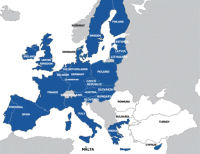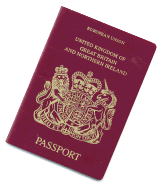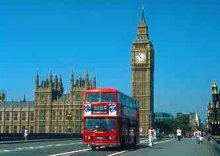| Travel
Insurance |
Always
take out Travel Insurance
well in advance of travelling. The
policy will cover you for any medical expenses that
you incur should you be involved in an accident
or become ill and require hospitalisation.
Sometimes medical costs can be
astronomic and without sufficient insurance cover
you could end up in serious trouble.
Apart
from medical expenses the policy
should also cover things like; legal expenses,
cancellation & curtailment, loss of money,
baggage & passport, repatriation and personal
liability.
Make
sure you are covered for any
activity that you intend to undertake so that
you and your equipment are covered while participating,
e.g. skiing, scuba diving etc.

|
|
|
|
UK
Government Information Sites |
|
 The
Foreign & Commonwealth Office provides
up to the minute information, public announcements
and travel warnings for UK citizens. The information
includes details of political unrest, lawlessness,
natural disasters ,epidemics, anti-British demonstrations
and aircraft safety, and is supplied on a country
by country basis. The
Foreign & Commonwealth Office provides
up to the minute information, public announcements
and travel warnings for UK citizens. The information
includes details of political unrest, lawlessness,
natural disasters ,epidemics, anti-British demonstrations
and aircraft safety, and is supplied on a country
by country basis.
 UK
Passport information
Everything you need to know about applying
for, renewing or amending a passport and what
to do if your passport is lost or stolen can be
found in this web site which now includes a standard
application form, which can be downloaded from
the site. UK
Passport information
Everything you need to know about applying
for, renewing or amending a passport and what
to do if your passport is lost or stolen can be
found in this web site which now includes a standard
application form, which can be downloaded from
the site.
 The
Department of Health Advice for Travellers
Travelling around the world always brings
with it some risk to health. However, by taking
certain – often simple – steps, you
can minimise your exposure to almost every major
health hazard. This web site provides information
on health risks around the world and how to avoid
them.
The
Department of Health Advice for Travellers
Travelling around the world always brings
with it some risk to health. However, by taking
certain – often simple – steps, you
can minimise your exposure to almost every major
health hazard. This web site provides information
on health risks around the world and how to avoid
them.
 Tips
For Healthy Travel Tips
For Healthy Travel
Travelling abroad, whether on business or
for pleasure, should be an exciting and enjoyable
experience. However, it can carry potential health
risks ........
|
|
| |
|
|
| The
European Health Insurance Card (EHIC) |
-
 The
European Health Insurance Card (EHIC) replaces
the old E111 paper form. The card allows access
to state-provided healthcare in all EEA (European
Economic Area) countries and Switzerland often
for free or at a reduced cost. Everyone who
is a UK resident and is travelling abroad should
carry a European Health Insurance Card. Each
card is valid for up to five years – ensure
that your card is valid before travelling. The
European Health Insurance Card (EHIC) replaces
the old E111 paper form. The card allows access
to state-provided healthcare in all EEA (European
Economic Area) countries and Switzerland often
for free or at a reduced cost. Everyone who
is a UK resident and is travelling abroad should
carry a European Health Insurance Card. Each
card is valid for up to five years – ensure
that your card is valid before travelling.
Did You Know?
-
It
is important to have both a European Health
Insurance Card and a valid private travel
insurance policy. Many insurers now insist
you hold an European Health Insurance Card
to be covered, this varies from insurer to
insurer please check with your insurance company.
-
The
card is not an alternative to travel insurance.
It will not cover any private medical healthcare
or things such as mountain rescue or lost
or stolen property. There are many travel
insurance companies out there, with a range
of policies to cover you and/or your family.
-
 If
you are travelling abroad especially for treatment.You
cannot use your European Health Insurance
Card. If
you are travelling abroad especially for treatment.You
cannot use your European Health Insurance
Card.
-
Your
European Health Insurance Card is valid for
5 years. You will need to renew your card
after this time for future travel.
-
You
can use your card in all European Economic
Area (EEA) countries and Switzerland.
-
To
be eligible for a European Health Insurance
Card (EHIC) you need to be a UK citizen who
intends to travel within the EU.
-
The
card is individual and you will need a card
for each of your children.
-
Some
insurers offer a reduction in your policy
excess in the event of a claim where the European
Health Insurance card is used, this varies
from insurer to insurer please check with
your insurance company.
|
|
| |
|
|
|
|
 It
is very important to enjoy yourself when on a trip, whether
it be for business or pleasure and you must not be constantly
worrying about what you should or should not be doing. It
is very important to enjoy yourself when on a trip, whether
it be for business or pleasure and you must not be constantly
worrying about what you should or should not be doing.
The following tips may enable you to reduce many of the
potential problems you could encounter on your trip.
Fortunately,
most people in most countries that you will meet on your
travels abroad will be honest, friendly and hospitable. But
it is an unfortunate fact of life that not everyone you may
meet will be as such. There are unpleasant types out there,
allbeit very few.
Leave copies of your important documents such as: tickets,
drivers license, passport, visas, medical documents, prescriptions
and so on with a friend just in case you need a back-up sent
to you in an emergency. Also, leave a copy of your itinerary
with family or friends at home so that you can be contacted
in case of an emergency.
 Familiarise
yourself with any local laws and customs of the countries
to which you are travelling and abide by them. Especially
if you are thinking about applying for part
time jobs because you have decided to extend your stay.
Know the laws about exchanging money and deal only with authorised
agents when you exchange money or purchase art or antiques.
Remember, while you are in a foreign country, you are subject
to its laws. Familiarise
yourself with any local laws and customs of the countries
to which you are travelling and abide by them. Especially
if you are thinking about applying for part
time jobs because you have decided to extend your stay.
Know the laws about exchanging money and deal only with authorised
agents when you exchange money or purchase art or antiques.
Remember, while you are in a foreign country, you are subject
to its laws.
Never leave your luggage unattended in public areas
especially in airports and never accept packages from strangers.
Put identifying markings on the suitcases you check through
such as bold coloured tape in a recognisable design. You could
also put tape over the closure to prevent tampering by baggage
handlers. Don't put all your valuables in luggage you check;
e.g. jewelry, cameras, watches. Remove old airline destination
tags.
Don't use your home address on you luggage tags. You don't
need to let anyone know where your empty house is located.
Put your business card in your luggage tag. For an extra measure
of security, attach another business card inside in case your
bag gets lost.
 Make
sure you have a signed, valid passport (and any visas,
if required). most countries require you to have a full 10
year passport. Your passport should be valid for at least
six months after your expected date of return to the UK and
have at least two blank pages to allow room for visa stamps.
If not, get a new one. Make
sure you have a signed, valid passport (and any visas,
if required). most countries require you to have a full 10
year passport. Your passport should be valid for at least
six months after your expected date of return to the UK and
have at least two blank pages to allow room for visa stamps.
If not, get a new one.
Before you go, make sure you fill in the emergency
contact information page of your passport!
Make two copies of your passport identification page.
This will facilitate replacement if your passport is lost
or stolen. Leave one copy at home with friends or relatives.
Carry the other with you in a separate place from your passport.
 To
avoid being a target of crime, try not to wear conspicuous
clothing and expensive jewelry. Dress conservatively and try
to blend in. Don’t draw attention to yourself, avoid
wearing flashy jewelry and don’t display large amounts
of cash. Do not carry excessive amounts of money or unnecessary
credit cards. Carry only enough cash to make it through the
day and leave the rest in the hotel’s safe. To
avoid being a target of crime, try not to wear conspicuous
clothing and expensive jewelry. Dress conservatively and try
to blend in. Don’t draw attention to yourself, avoid
wearing flashy jewelry and don’t display large amounts
of cash. Do not carry excessive amounts of money or unnecessary
credit cards. Carry only enough cash to make it through the
day and leave the rest in the hotel’s safe.
If you haven’t left your valuables at home, leave
them in your hotel’s safe. Do not carry your passport
around, leave it in the safe in your hotel. A photocopy will
suffice if local law states that you need to.
Avoid travelling alone. Always be aware of what is
going on around you. Try to look as if you know where you
are going, this may not be so easy if after all it is the
first ever time in that country, but even still look confident
as IF you know.
 Stick
to the main roads and avoid taking shortcuts down narrow alleys
and/or poorly lit streets. Carrying maps around looking perplexed,
and stopping to look at monuments or buildings, obviously
shows that you are from out of town, and may attract the wrong
type of attention. Stick
to the main roads and avoid taking shortcuts down narrow alleys
and/or poorly lit streets. Carrying maps around looking perplexed,
and stopping to look at monuments or buildings, obviously
shows that you are from out of town, and may attract the wrong
type of attention.
 Do
NOT pull large amounts of cash out of your pocket. This
will catch attention, no matter what country you are in. It
sounds so silly, but it is amazing how many people pull out
a mound of cash to be some small item. Do
NOT pull large amounts of cash out of your pocket. This
will catch attention, no matter what country you are in. It
sounds so silly, but it is amazing how many people pull out
a mound of cash to be some small item.
Try to think about where you are going that day and
carry sufficient cash or travellers cheques for that and any
unforeseen extras, plus a card. That should cover all you
need and will limit any losses if anything did happen. Using
travellers cheques, will always be helpful, as will using
a credit card for any purchases made so that you can take
advantage of the additional insurance offered.
 Make
a list of your credit card and travellers cheques company
phone numbers in case you have to cancel them in the event
of loss or theft. Make
a list of your credit card and travellers cheques company
phone numbers in case you have to cancel them in the event
of loss or theft.
Approach any "special deals" with caution,
especially if you have to go off the beaten path to get them.
If it sounds too good to be true, it is - it's as simple as
that!
Never accept gifts or packages from unknown parties
to carry out of the country and deliver or mail to someone
they know.
 Beware
of well-dressed people who happen to be around, happen
to speak your language fluently and happen to come up to you
and start chatting. Gangs exist that are fronted by some very
credible people who win your confidence and then take you
to see their friend or a relative where you can buy lots of
different things at low, low prices. Don't be tempted -
you will get ripped off! Beware
of well-dressed people who happen to be around, happen
to speak your language fluently and happen to come up to you
and start chatting. Gangs exist that are fronted by some very
credible people who win your confidence and then take you
to see their friend or a relative where you can buy lots of
different things at low, low prices. Don't be tempted -
you will get ripped off!
Do NOT accept drinks from anybody that you have just met,
especially if in dubious surroundings or do not know, they
could be laced with any type of concoction.
Don't under any circumstances get involved with or take
drugs. Some counties have severe penalties for drug misuse
including the death penalty. You could get to stay a long
time in that at the government's expense if you are caught
even with a very small amount.
 Whereverer
you travel it is always worthwhile making a note of where
your local embassy is. Your embassy is your connection to
your home country while on holiday and are there to assist
if you lose your passport or are in trouble. You will normally
find your embassy in the capital city of a country, though
other major cities might have consulates or comsulate offices. Whereverer
you travel it is always worthwhile making a note of where
your local embassy is. Your embassy is your connection to
your home country while on holiday and are there to assist
if you lose your passport or are in trouble. You will normally
find your embassy in the capital city of a country, though
other major cities might have consulates or comsulate offices.
If you plan to stay abroad for more than two months,
upon arrival you should notify by phone or register in person
with the British Embassy or High Commission in the country
you are visiting. This will facilitate communication in case
someone contacts the embassy looking for you.
 Finally,
if you do get into trouble, contact the nearest British
Embassy or High Commission. (or your own embassy). Finally,
if you do get into trouble, contact the nearest British
Embassy or High Commission. (or your own embassy).
Any British national who gets into difficulty overseas
can seek help from the nearest British diplomatic mission
24 hours a day.
Where there is no British representative in a country,
British nationals may instead contact the nearest EU Mission
in that country.
The first thing you should do if anything goes wrong
is to contact your relatives and friends at home. They can
then take appropriate action within the UK. The same advice
should be taken if a natural disaster occurs during your visit
to a foreign country.
 In
most cases people only need advice, but in cases of real
difficulty such as death abroad, serious accidents and illnesses,
arrests and detentions, or those at risk of physical harm,
the Consul will take action. In
most cases people only need advice, but in cases of real
difficulty such as death abroad, serious accidents and illnesses,
arrests and detentions, or those at risk of physical harm,
the Consul will take action.
The Consul will do everything possible to help British
nationals who have been arrested or detained overseas. The
Consul cannot get you out of jail or give you money. But the
Consul will take action if your rights have been denied or
abused.
|











 The
European Health Insurance Card (EHIC) replaces
the old E111 paper form. The card allows access
to state-provided healthcare in all EEA (European
Economic Area) countries and Switzerland often
for free or at a reduced cost. Everyone who
is a UK resident and is travelling abroad should
carry a European Health Insurance Card. Each
card is valid for up to five years – ensure
that your card is valid before travelling.
The
European Health Insurance Card (EHIC) replaces
the old E111 paper form. The card allows access
to state-provided healthcare in all EEA (European
Economic Area) countries and Switzerland often
for free or at a reduced cost. Everyone who
is a UK resident and is travelling abroad should
carry a European Health Insurance Card. Each
card is valid for up to five years – ensure
that your card is valid before travelling. If
you are travelling abroad especially for treatment.You
cannot use your European Health Insurance
Card.
If
you are travelling abroad especially for treatment.You
cannot use your European Health Insurance
Card. It
is very important to enjoy yourself when on a trip, whether
it be for business or pleasure and you must not be constantly
worrying about what you should or should not be doing.
It
is very important to enjoy yourself when on a trip, whether
it be for business or pleasure and you must not be constantly
worrying about what you should or should not be doing. Familiarise
yourself with any local laws and customs of the countries
to which you are travelling and abide by them. Especially
if you are thinking about applying for
Familiarise
yourself with any local laws and customs of the countries
to which you are travelling and abide by them. Especially
if you are thinking about applying for  Make
sure you have a signed, valid passport (and any visas,
if required). most countries require you to have a full 10
year passport. Your passport should be valid for at least
six months after your expected date of return to the UK and
have at least two blank pages to allow room for visa stamps.
If not, get a new one.
Make
sure you have a signed, valid passport (and any visas,
if required). most countries require you to have a full 10
year passport. Your passport should be valid for at least
six months after your expected date of return to the UK and
have at least two blank pages to allow room for visa stamps.
If not, get a new one. To
avoid being a target of crime, try not to wear conspicuous
clothing and expensive jewelry. Dress conservatively and try
to blend in. Don’t draw attention to yourself, avoid
wearing flashy jewelry and don’t display large amounts
of cash. Do not carry excessive amounts of money or unnecessary
credit cards. Carry only enough cash to make it through the
day and leave the rest in the hotel’s safe.
To
avoid being a target of crime, try not to wear conspicuous
clothing and expensive jewelry. Dress conservatively and try
to blend in. Don’t draw attention to yourself, avoid
wearing flashy jewelry and don’t display large amounts
of cash. Do not carry excessive amounts of money or unnecessary
credit cards. Carry only enough cash to make it through the
day and leave the rest in the hotel’s safe. Stick
to the main roads and avoid taking shortcuts down narrow alleys
and/or poorly lit streets. Carrying maps around looking perplexed,
and stopping to look at monuments or buildings, obviously
shows that you are from out of town, and may attract the wrong
type of attention.
Stick
to the main roads and avoid taking shortcuts down narrow alleys
and/or poorly lit streets. Carrying maps around looking perplexed,
and stopping to look at monuments or buildings, obviously
shows that you are from out of town, and may attract the wrong
type of attention. Do
NOT pull large amounts of cash out of your pocket. This
will catch attention, no matter what country you are in. It
sounds so silly, but it is amazing how many people pull out
a mound of cash to be some small item.
Do
NOT pull large amounts of cash out of your pocket. This
will catch attention, no matter what country you are in. It
sounds so silly, but it is amazing how many people pull out
a mound of cash to be some small item. Beware
of well-dressed people who happen to be around, happen
to speak your language fluently and happen to come up to you
and start chatting. Gangs exist that are fronted by some very
credible people who win your confidence and then take you
to see their friend or a relative where you can buy lots of
different things at low, low prices. Don't be tempted -
you will get ripped off!
Beware
of well-dressed people who happen to be around, happen
to speak your language fluently and happen to come up to you
and start chatting. Gangs exist that are fronted by some very
credible people who win your confidence and then take you
to see their friend or a relative where you can buy lots of
different things at low, low prices. Don't be tempted -
you will get ripped off! Whereverer
you travel it is always worthwhile making a note of where
your local embassy is. Your embassy is your connection to
your home country while on holiday and are there to assist
if you lose your passport or are in trouble. You will normally
find your embassy in the capital city of a country, though
other major cities might have consulates or comsulate offices.
Whereverer
you travel it is always worthwhile making a note of where
your local embassy is. Your embassy is your connection to
your home country while on holiday and are there to assist
if you lose your passport or are in trouble. You will normally
find your embassy in the capital city of a country, though
other major cities might have consulates or comsulate offices.
 Finally,
if you do get into trouble, contact the nearest British
Embassy or High Commission. (or your own embassy).
Finally,
if you do get into trouble, contact the nearest British
Embassy or High Commission. (or your own embassy).